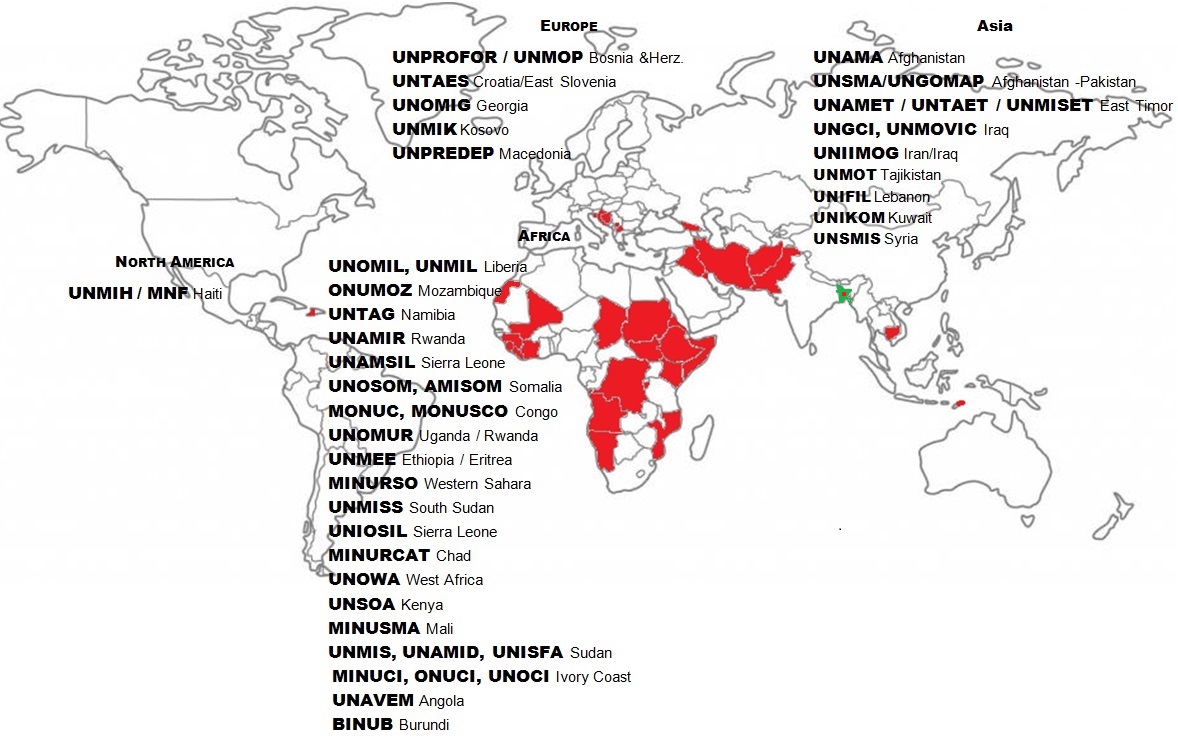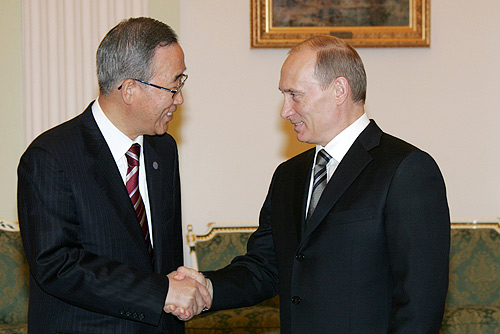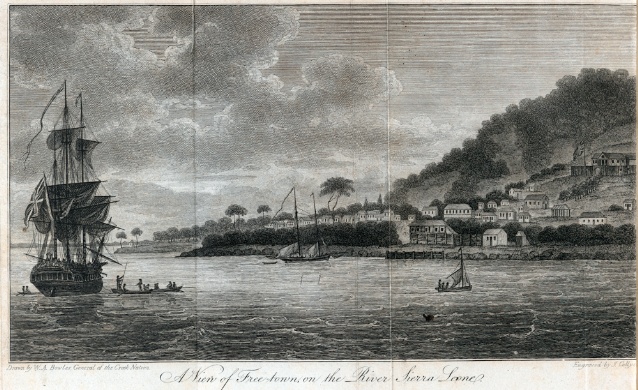|
UNAMSIL
The United Nations Mission in Sierra Leone (UNAMSIL) was a United Nations peacekeeping operation in Sierra Leone from 1999 to 2006. It was created by the United Nations Security Council in October 1999 to help with the implementation of the Lomé Peace Accord, an agreement intended to end the Sierra Leonean civil war. UNAMSIL expanded in size several times in 2000 and 2001. It concluded its mandate at the end of 2005, the Security Council having declared that its mission was complete. The mandate was notable for authorizing UNAMSIL to protect civilians under imminent threat of physical violence (albeit "within its capabilities and areas of deployment") – a return to a more proactive style of UN peacekeeping. UNAMSIL replaced a previous mission, the United Nations Observer Mission in Sierra Leone (UNOMSIL). After 2005 the United Nations Integrated Office in Sierra Leone (UNIOSIL) began operations as a follow up to UNAMSIL. UNIOSIL's mandate was extended twice and ended in S ... [...More Info...] [...Related Items...] OR: [Wikipedia] [Google] [Baidu] |
Sierra Leone Civil War
The Sierra Leone Civil War (1991–2002), or the Sierra Leonean Civil War, was a civil war in Sierra Leone that began on 23 March 1991 when the Revolutionary United Front (RUF), with support from the special forces of Liberia, Liberian dictator Charles Taylor (Liberian politician), Charles Taylor's National Patriotic Front of Liberia (NPFL), intervened in Sierra Leone in an attempt to overthrow the Joseph Momoh government. The resulting civil war lasted 11 years, enveloped the country, and left over 50,000 dead.Gberie, p. 6 During the first year of the war, the RUF took control of large swathes of territory in eastern and southern Sierra Leone, which were rich in alluvial diamonds. The government's ineffective response to the RUF, and the disruption in government diamond production, precipitated a military ''coup d'état'' in April 1992 by the National Provisional Ruling Council (NPRC).Gberie, p. 103 By the end of 1993, the Republic of Sierra Leone Armed Forces, Sierra Leone Ar ... [...More Info...] [...Related Items...] OR: [Wikipedia] [Google] [Baidu] |
UNOMSIL
The United Nations Observer Mission in Sierra Leone (UNOMSIL) was a United Nations peacekeeping operation in Sierra Leone from 1998 to 1999 that was established with the passage of United Nations Security Council Resolution 1181. Its mission was to monitor the military and security situation in Sierra Leone. The mission was terminated in October 1999, when the Security Council authorized deployment of a new, and significantly larger peacekeeping operation, the Nations Mission in Sierra Leone (UNAMSIL). Mandate UNOMSIL's military element was to: *Monitor the military and security situation in the country as a whole, *Monitor the disarmament and demobilization of former combatants, as well as role of ECOWAS in the provision of security in the area, *Assist in monitoring respect for international humanitarian law, *Monitor the voluntary disarmament and demobilization of members of the Civil Defense Forces. UNOMSIL's civilian element was to: *Advise the Government of Sierr ... [...More Info...] [...Related Items...] OR: [Wikipedia] [Google] [Baidu] |
Peacekeeping
Peacekeeping comprises activities intended to create conditions that favour lasting peace. Research generally finds that peacekeeping reduces civilian and battlefield deaths, as well as reduces the risk of renewed warfare. Within the United Nations (UN) group of nation-state governments and organisations, there is a general understanding that at the international level, peacekeepers monitor and observe peace processes in post-conflict areas, and may assist ex-combatants in implementing peace agreement commitments that they have undertaken. Such assistance may come in many forms, including confidence-building measures, power-sharing arrangements, electoral support, strengthening the rule of law, and economic and social development. Accordingly, the UN peacekeepers (often referred to as Blue Berets or Blue Helmets because of their light blue berets or helmets) can include soldiers, police officers, and civilian personnel. The United Nations is not the only organisation to implem ... [...More Info...] [...Related Items...] OR: [Wikipedia] [Google] [Baidu] |
United Nations Security Council Resolution 1610
United Nations Security Council resolution 1610, adopted unanimously on 30 June 2005, after recalling all previous resolutions on the situation in Sierra Leone, the Council extended the mandate of the United Nations Mission in Sierra Leone (UNAMSIL) for a final six months until 31 December 2005. Resolution Observations In the preamble of the resolution, the council emphasised the importance of long-term support for Sierra Leone by the United Nations and international community. The Secretary-General Kofi Annan had approved the drawdown schedule for UNAMSIL and the need for a strong United Nations presence in Sierra Leone once it had left. It welcomed the work of the Truth and Reconciliation Commission and the Special Court for Sierra Leone. Acts Acting under Chapter VII of the United Nations Charter, the council extended the mandate of UNAMSIL until the end of 2005. The secretary-general was required to finalise arrangements for a United Nations system presence in Sierra Leone, ... [...More Info...] [...Related Items...] OR: [Wikipedia] [Google] [Baidu] |
United Nations Security Council Resolution 1270
United Nations Security Council resolution 1270, adopted unanimously on 22 October 1999, after recalling resolutions 1171 (1998), 1181 (1998), 1231 (1999) and 1260 (1999) on the situation in Sierra Leone and United Nations Security Council Resolution 1265, Resolution 1265 (1999) on the protection of civilians in armed conflict, established the United Nations Mission in Sierra Leone (UNAMSIL) to assist in the implementation of the Lomé Peace Accord. The Government of Sierra Leone and rebels in the country had taken important steps to implement the peace agreement of 7 July 1999 in Lomé. There were preparations for the disarmament, demobilisation and reintegration of ex-combatants, including child soldiers. The Revolutionary United Front (RUF), Civil Defence Forces, former Sierra Leone Armed Forces/Armed Forces Revolutionary Council (AFRC) and all other armed groups were called upon to lay down their arms. Meanwhile, the Council deplored the taking of hostages, including perso ... [...More Info...] [...Related Items...] OR: [Wikipedia] [Google] [Baidu] |
United Nations Integrated Office In Sierra Leone
The United Nations Integrated Office in Sierra Leone (UNIOSIL) was established by Resolution 1620 of the United Nations Security Council in 2005 to begin operations in 2006 as a follow up to United Nations Mission in Sierra Leone (UNAMSIL) which helped end the Sierra Leone Civil War. It was extended twice and ended on 30 September 2008; it was replaced with the United Nations Integrated Peacebuilding Office in Sierra Leone (UNIPSIL). References Politics of Sierra Leone 1620 Events January–June * February 4 – Prince Bethlen Gabor signs a peace treaty with Ferdinand II, Holy Roman Emperor. * May 17 – The first merry-go-round is seen at a fair (Philippapolis, Turkey). * June 3 – ... Sierra Leone and the United Nations {{UN-stub ... [...More Info...] [...Related Items...] OR: [Wikipedia] [Google] [Baidu] |
Ahmad Tejan Kabbah
Alhaji Ahmad Tejan Kabbah (February 16, 1932 – March 13, 2014) was a Sierra Leonean politician who served twice as the 3rd President of Sierra Leone, from 1996 to 1997 and again from 1998 to 2007. An economist and attorney by profession, Kabbah spent many years working for the United Nations Development Programme. He retired from the United Nations and returned to Sierra Leone in 1992. In early 1996, Kabbah was elected leader of the Sierra Leone People's Party (SLPP) and was the party's presidential candidate in the country's first free presidential election later that year. He was elected with 59% of the vote, defeating his closest rival, John Karefa-Smart of the United National People's Party (UNPP), who had 40% in the runoff vote and conceded defeat. International observers declared the election free and fair. Kabbah campaigned on a promise to end the civil war if elected president. During his inauguration speech as president, Kabbah repeated he promised to end the civil ... [...More Info...] [...Related Items...] OR: [Wikipedia] [Google] [Baidu] |
Bangladesh UN Peacekeeping Force
The Bangladesh Armed Forces and the Bangladesh Police have been actively involved in a number of United Nations Peace Support Operations (UNPSO) since 1988. Currently Bangladesh is the largest contributor in the UN peacekeeping missions. Bangladesh has several responsibilities in the UN peacekeeping mission. There are helicopter pilots who serve as peacekeepers for the UN. They are locally trained so they have to face several unknown threats and challenges. They have been trained in a different terrain therefore making their job easier. History Bangladesh's first deployments came in 1988, when it participated in two operations - UNIIMOG in Iraq and UNTAG in Namibia. The then former President of Bangladesh Lieutenant General Hussain Muhammad Ershad initiated these deployments in 1988 for the first time with UNIIMOG with 15 military observers. Later, as part of the UNIKOM force deployed to Kuwait following the Gulf War, the Bangladesh Army sent a mechanized infantry brigade of a ... [...More Info...] [...Related Items...] OR: [Wikipedia] [Google] [Baidu] |
United Nations Integrated Peacebuilding Office In Sierra Leone
The United Nations Integrated Peacebuilding Office in Sierra Leone (UNIPSIL) was established by the United Nations Security Council in 2008 to provide support to the Government of Sierra Leone in identifying and resolving tensions and threats of potential conflict, monitoring and promoting human rights, and consolidating good governance reforms. Former UN Secretary General Ban Ki Moon travelled to Freetown, Sierra Leone to mark the closure of UNIPSIL, which officially ended on 31 March 2014. See also * United Nations Integrated Office in Sierra Leone The United Nations Integrated Office in Sierra Leone (UNIOSIL) was established by Resolution 1620 of the United Nations Security Council in 2005 to begin operations in 2006 as a follow up to United Nations Mission in Sierra Leone (UNAMSIL) which ... (UNIOSIL) References Politics of Sierra Leone 1829 Sierra Leone and the United Nations {{UN-stub ... [...More Info...] [...Related Items...] OR: [Wikipedia] [Google] [Baidu] |
Pakistan
Pakistan ( ur, ), officially the Islamic Republic of Pakistan ( ur, , label=none), is a country in South Asia. It is the world's List of countries and dependencies by population, fifth-most populous country, with a population of almost 243 million people, and has the world's Islam by country#Countries, second-largest Muslim population just behind Indonesia. Pakistan is the List of countries and dependencies by area, 33rd-largest country in the world by area and 2nd largest in South Asia, spanning . It has a coastline along the Arabian Sea and Gulf of Oman in the south, and is bordered by India to India–Pakistan border, the east, Afghanistan to Durand Line, the west, Iran to Iran–Pakistan border, the southwest, and China to China–Pakistan border, the northeast. It is separated narrowly from Tajikistan by Afghanistan's Wakhan Corridor in the north, and also shares a maritime border with Oman. Islamabad is the nation's capital, while Karachi is its largest city and fina ... [...More Info...] [...Related Items...] OR: [Wikipedia] [Google] [Baidu] |
Ban Ki-Moon
Ban Ki-moon (; ; born 13 June 1944) is a South Korean politician and diplomat who served as the eighth secretary-general of the United Nations between 2007 and 2016. Prior to his appointment as secretary-general, Ban was his country's Minister of Foreign Affairs and Trade between 2004 and 2006. Ban was the foreign minister of South Korea between 2004 and 2006. Ban was initially considered to be a long shot for the office of Secretary-General of the United Nations however, he began to campaign for the office in February 2006. As the foreign minister of South Korea, he was able to travel to all the countries on the United Nations Security Council, a maneuver that subsequently turned him into the campaign's front runner. On 13 October 2006, he was elected as the eighth secretary-general by the United Nations General Assembly. On 1 January 2007, he succeeded Kofi Annan. As secretary-general, he was responsible for several major reforms on peacekeeping and UN employment practice ... [...More Info...] [...Related Items...] OR: [Wikipedia] [Google] [Baidu] |
Freetown
Freetown is the capital and largest city of Sierra Leone. It is a major port city on the Atlantic Ocean and is located in the Western Area of the country. Freetown is Sierra Leone's major urban, economic, financial, cultural, educational and political centre, as it is the seat of the Government of Sierra Leone. The population of Freetown was 1,055,964 at the 2015 census. The city's economy revolves largely around its harbour, which occupies a part of the estuary of the Sierra Leone River in one of the world's largest natural deep water harbours. Although the city has traditionally been the homeland of the Sierra Leone Creole people, the population of Freetown is ethnically, culturally, and religiously diverse. The city is home to a significant population of all of Sierra Leone's ethnic groups, with no single ethnic group forming more than 27% of the city's population. As in virtually all parts of Sierra Leone, the Krio language of the Sierra Leone Creole people is Freetown's ... [...More Info...] [...Related Items...] OR: [Wikipedia] [Google] [Baidu] |




